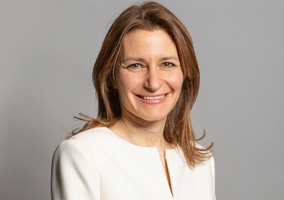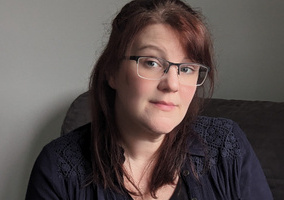Last week, culture secretary Lucy Frazer urged the British public to get over its “squeamish” attitude to philanthropy and a tendency to view charitable donations, “particularly by businesses, with mild suspicion”.
Her words echoed those of Orlando Fraser, chair of the Charity Commission, who last year warned trustees they could face regulatory action if they demonstrate “personal squeamishness” around sources of philanthropic funding.
Unlike the Commission chair, Frazer gave examples of charities being pressured into rejecting money from organisational funders.
“It has to start with applauding – not seeking to find fault with – those organisations who give generously, whether that’s through sponsorships or donations.
“Just look at the past few years. The Science Museum forced to abandon its backing by Shell.
“The National Portrait Gallery received a great deal of unwarranted criticism for its sponsorship by a law firm.
“For its recent commitment of £50m to the British Museum, the biggest donation of its kind, I think we should say to BP, thank you.”
The examples relate to money from fossil fuel giants, with the law firm, Herbert Smith Freehills, having represented several oil and gas firms including BP.
Many other charities have taken a stand on climate change recently, with the Church of England announcing its divestment from fossil fuels last year.
Charity sector groups have campaigned prominently on green issues in recent years, including NPC’s Everyone’s Environment programme and NCVO’s Fuelling Positive Change initiative.
Partnering with fossil fuel giants risks undermining all of this work.
A complicated decision
Frazer oversimplified the decision charities face when they are criticised for taking money from a divisive source.
The charities she named do not merely have to choose between money and morals – by accepting one, large, controversial donation, they risk putting off other would-be donors, not to mention their staff and volunteers, who are equally rare and treasured assets during a cost-of-living crisis.
Autistic Nottingham chief executive Claire Whyte wrote for Fundraising Magazine recently: “We would sacrifice the faith and trust of our beneficiaries if we took funds from an unethical source, which, at the end of the day, would leave us with a lot of cash in the bank and no one to give it to.”
Frazer quoted the Commission chair in her speech last week: “Giving is good for those who give, it is good for those who benefit, and it is good for society as a whole.”
This is a nice phrase but it deserves scrutiny. Why is it good for those who give? On a basic level, the donor loses money.
What wealthy organisations gain from large, high-profile donations is legitimacy. Polls in recent years have shown that the general public increasingly trusts charities, unlike other institutions.
Last year, charities’ public trust rating rose to 6.3 out of 10, compared to 5.0 for private firms.
Charities are therefore a shrewd investment for organisations with cash to spare seeking to boost their own profile by association.
It is vital that charities consider the potential impact on their reputation that an association with a less popular organisation could have.
Charities, and the general public, would be naïve not to consider why an organisation would want to make a large donation with their own branding prominently positioned.
The timing of these speeches is curious, too, with English Heritage returning a £11.2m donation, the largest in its history, last year after the Hamish Ogston Foundation’s founder was accused of human trafficking.
Presumably, Fraser and Frazer would not consider the conservation charity’s trustees squeamish for doing so.
Applying pressure to the wealthy
It is welcome to hear the culture secretary and Commission chair each express ambitions for an increase in philanthropic giving in the UK.
But it is unhelpful for them both to imply that recipient charities bear some responsibility for British philanthropists’ lack of generosity.
Pressure should be applied to the high-net-worth individuals and organisational donors hoarding funds rather than the charities in desperate need of them.
Writing for Civil Society last year, Alliance magazine executive editor Charles Keidan proposed that charitable trusts in the UK should be required to pay out at least 5% of their assets each year in grants.
The 5% requirement would match the amount that foundations in the US, Canada and Australia are required to donate and could raise an estimated £1bn more for charities.
While this proposed intervention was unpopular with many in the sector, it would arguably be more likely to boost charities’ incomes than mere encouragement.
In the meantime, let’s start with applauding charities that do make the difficult decision to turn down funding for the good of their cause.
Related Articles












